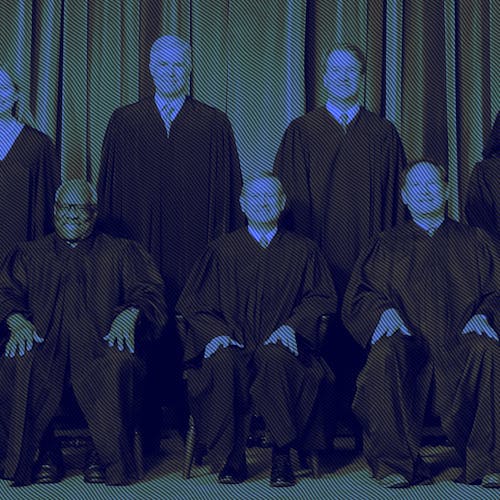O'BRIEN: Colleges can salvage Enlightenment ideas

After writing dozens of articles for this newspaper over the last three years, this will be my final column. I have written about everything from the pressing need for municipal zoning reform in major cities to how we can talk to each other about politics constructively. I am, of course, flushed with nostalgia for the memories I have made here at Rutgers and the many friends I will leave behind.
But the prospect of graduation has also made me reflective of universities like Rutgers and the role they play in society. Rutgers is a research university. Whether you have taken advantage of it or not, some of the top researchers in the world — genuinely brilliant people — teach and work at this institution.
Universities like ours are centered around the notion of relentless scientific, systematic inquiry. They see immense value in pushing the boundaries of human knowledge and disseminating findings to eager young minds who wish to enter the workforce with not just a bundle of memorized information, but a framework for critical thinking.
The modern research university was born out of Enlightenment ideals, with a dual mandate to create a population able to think analytically and to produce research that helps solve the world’s great mysteries. We can squabble over whether the investment in a college education remains worthwhile for most people — the answer is unambiguously "yes" — but few would explicitly question the public value of these goals.
Yet American universities have come under attack, and not just from those questioning the cost of a degree. Activists are again turning campuses into battlegrounds upon which to litigate their cultural grievances, through wars over curricula to vicious protests over guest speakers.
While each of these disputes have merits that may fall on one side or another, they do not really matter. Their true purpose is rarely just about institutional reforms. Our 21st century “free speech wars” are not really about free speech at all. Rather, they are about identity. They are about which giant, incoherent cultural tribe — red or blue — you belong to. At their core, these battles have nothing to do with even universities themselves. They are a part of something much bigger, a cultural angst that overwhelms reason.
This malaise that is consuming American universities has already infected American society and it poses a threat to Enlightenment thought as the basis of our public discourse. Science, reason and data play second fiddle to feeling, subjectivity, relativism and gut instinct. Facts no longer matter as much as how something makes you feel. It should be no surprise that President Donald J. Trump embodies this attitude, valuing the satisfaction of “Owning the Libs” above all else.
But perhaps this anti-Enlightenment feeling is best exemplified by a group of cultural and political figures who, ironically, brand themselves as standing for reason, free speech and an Enlightenment framework on college campuses: the so-called Intellectual Dark Web. These figures, including Dave Rubin, Jordan Peterson and Ben Shapiro, are culture warriors first and foremost. They are professional provocateurs who travel the country solely to anger others and elicit absurd reactions that bolster their notoriety.
While consistently wading into political waters, they turn out to know very little about public policy or economics. Their appeal lies in the way they make their followers feel. They are successfully building a cultural tribe united by being anti-Left and nothing more.
This group blames much of America’s current political division on “identity politics,” claiming that this way of thinking pits racial or religious groups against each other, breeding animosity. But in a diverse, open society, there is nothing inherently wrong with pluralistic policy that acknowledges and caters to our differences. The problem eroding our discourse and leading us down a dangerous anti-Enlightenment path is not identity politics, but politics as identity.
The technical questions of public policy, economics, biology, climatology and chemistry are being dragged into a bloody culture war from which they may not recover. When hard, multifaceted questions in these fields come into conflict with highly dogmatic identities, reason will always lose.
Universities, with all their flaws, are some of the last major institutions in American society striving to hold up the banner of the Enlightenment. As the heat-trapping properties of atmospheric carbon dioxide become purely a question of whether you belong to the red team or the blue team, institutions that value expertise and universal knowledge are threatened. I cannot say for sure whether this trend is merely fleeting or a sign that we are destined to descend into alternative, parallel universes of truth.
But if there is any institution capable of breaking the stranglehold that identity now has over reason, restoring our faith in expertise and the scientific method and reasserting the role of shared knowledge in our public discourse, it is the American research university.
Connor O'Brien is a School of Arts and Sciences junior majoring in economics. His column, "Policy Over Politics," runs on alternate Thursdays.
*Columns, cartoons and letters do not necessarily reflect the views of the Targum Publishing Company or its staff.
YOUR VOICE | The Daily Targum welcomes submissions from all readers. Due to space limitations in our print newspaper, letters to the editor must not exceed 500 words. Guest columns and commentaries must be between 700 and 850 words. All authors must include their name, phone number, class year and college affiliation or department to be considered for publication. Please submit via email to [email protected] by 4 p.m. to be considered for the following day’s publication. Columns, cartoons and letters do not necessarily reflect the views of the Targum Publishing Company or its staff.



